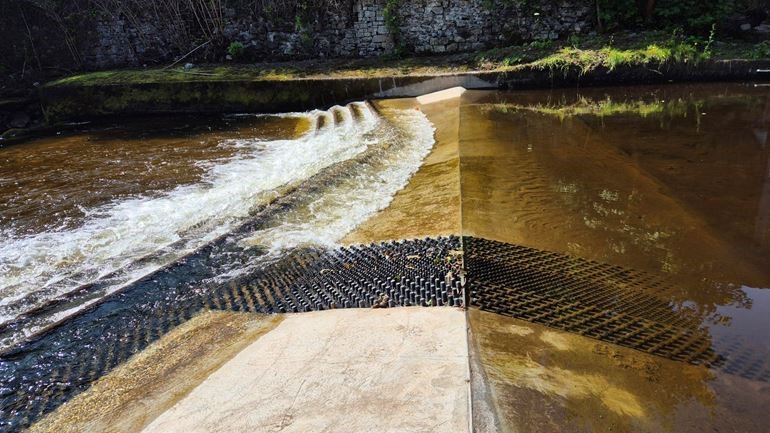Natural Resources Wales (NRW) has completed repairs of a river level and flow monitoring station on the River Taff at Merthyr Tydfil.
The weir at the monitoring station was damaged by record high river flows during the devastating February 2020 storms, notably Ciara and Dennis.
NRW’s network of more than 400 monitoring stations across Wales provide live river level, rainfall and tidal data, all of which is used to issue flood warnings to people living or working in flood risk areas.
The monitoring station on the River Taff at Merthyr Tydfil is an important site for NRW’s Flood Warning Service for communities that live close to the River Taff.
The data received is used to issue flood warnings to more than 1,700 properties in communities, such as Merthyr Tydfil, Aberfan, Troedyrhiw and Quakers Yard, in the upper Taff catchment. It also provides early notice of high river levels for flood alerts in lower parts of the Taff catchment, including Pontypridd and Cardiff.
A dive survey carried out as part of checks of NRW’s assets after the 2020 storms identified areas of damage to the concrete which had left steel reinforcement bars exposed. The survey also identified damage to the fish baffles and eel tiles that help them migrate over the weir and upstream to spawn.
The design and repairs were completed by contractors in June and July at a cost of £200,000.
Tim England, Operations Manager (Flood and Water) for NRW, said:
“The devastating storms that have hit Wales over the last few years has caused a lot of damage to our flood risk management assets.
“It’s important that our flood risk and river level information service is working properly so that we can warn at risk communities so they can be as prepared as possible if flooding happens. The live data from these stations is also a valuable resource for recreational river users, such as anglers and water-based activity enthusiasts.
“The repairs we have carried out means we have a more resilient monitoring station which translates to a more resilient service for the people living and working in the area and in downstream communities.
“It is also now a safer environment for our operatives to work in and ensures fish can continue to migrate to the upper reaches of the Taff to spawn.”



